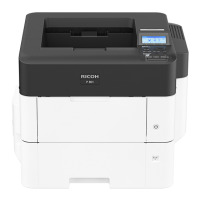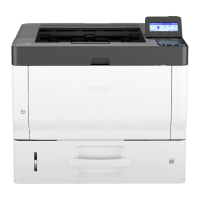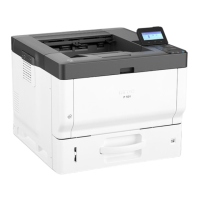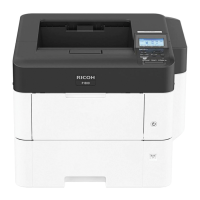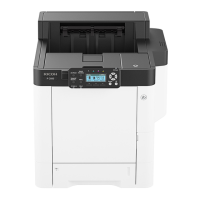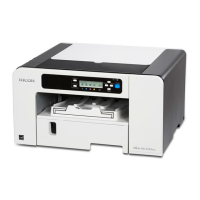UNIX Configuration
12
1
Solaris
❖ Adding the IP address and host name to the /etc/hosts file
The following line is added to the /etc/hosts file. The IP address and printer
host name previously entered in the installation script will be used.
192.168.15.16 nphost # Network Printer
• 192.168.15.16 is the IP address, nphost is the host name, from # to the end
of the line is the comment.
Note
❒ The /etc/hosts file contains a list of IP addresses and host names of all
hosts communicating on the network. Each entry is delimited with a space
or a tab, and each line is separated with a return.
❒ If you do not use NIS or DNS, you must manually enter the IP address and
host name of each workstation using the network printer in the /etc/hosts
file.
❖ Registering the printer
The installation shell script registers the printer as a remote printer following
the procedure below:
A If your workstation is Solaris 2.5.1, register the print server and print client
to the print service.
# lpsystem -t bsd -R 0 -y Network Printer nphost
B Register the printer as a remote printer.
# lpadmin -p np -s nphost!option -T dump -I any
• np is the printer name, nphost is the host name. For details about “op-
tion”, see p.19 “Specifying the Device Option”.
“lp” will be assigned, if the option is not used.
When printing with the lp command, use ( _ ) instead of ( = ) and ( ; )
instead of ( , ) for operating systems that cannot use ( = ) and ( , ) such as
Solaris 2.5 or later.
C If your workstation is Solaris 2.5.1, set the print job to active so it can be ac-
cepted by the print queue.
/usr/lib/accept np
D If your workstation is Solaris 2.5.1, set the print job to active to print.
/usr/lib/enable np
